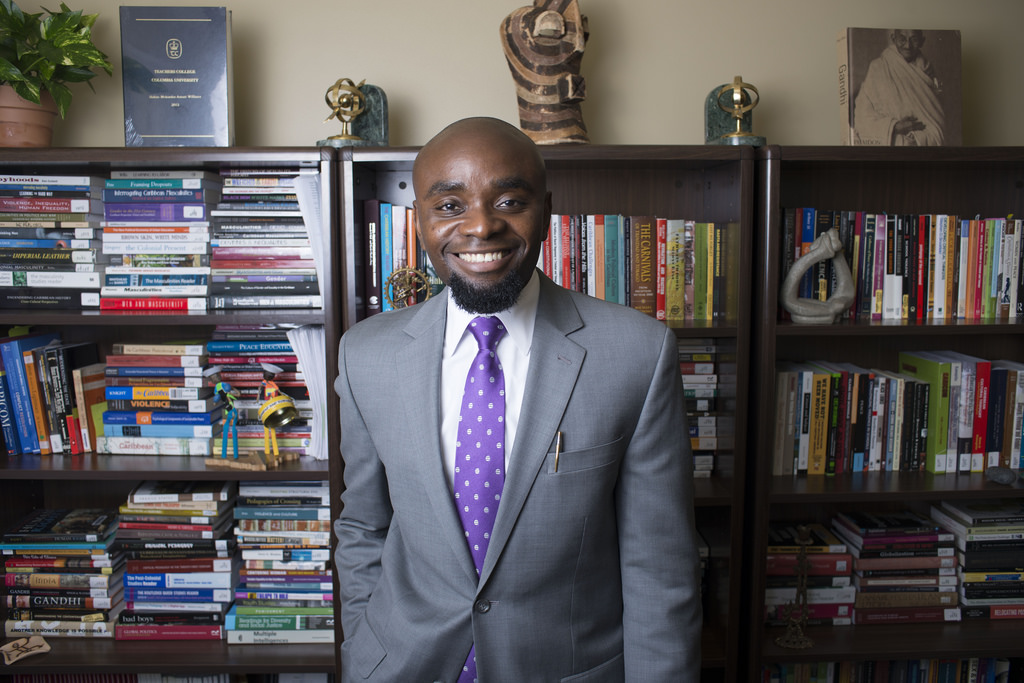In 2019, when alumnus Hakim Mohandas Amani Williams received Teachers College’s Early Career Award, he paid tribute to his mother, Celia, calling her “a lioness whose spirit is conjoined to that pantheon of ancestors that, come what may, refuse to capitulate to a world that said ‘No’ far too many times.”
The resilient spirit of those ancestors continues to guide Williams (Ed.D. ’12), a ground-breaking peace educator who recently received a U.S. Fulbright Scholar Program Award for his project “Decolonial Peace and Justice Education: A Transatlantic Study of Four Afro-centric, Youth-based Organizations.”
“I hope to highlight the audacious political work of Black youth amidst a colonially-constructed, global environment that has long been perturbed by Black resilience,” Williams told reporter Ali Dayton of The Gettysburgian, a publication of Gettysburg College, where he serves as Associate Professor of Africana Studies and Director of Peace and Justice Studies. (He also is an Adjunct Associate Professor at TC.)
Williams is known in his field for advocating a new “critical peace education” that focuses on power and structural inequality at a time when, as he has put it, flows of global capital have taken precedence over a focus on human rights violations and environmental degradation.
As a doctoral student at Teachers College, he studied with Peter Coleman, Director of TC’s Morton Deutsch International Center for Cooperation and Conflict Resolution and peace education faculty member Monisha Bajaj (now at the University of San Francisco). He credits TC as the place where he received “a vocabulary to name and decode the violence in which I grew up and to connect that analysis to the globalized violence of the colonialism of yesteryear and today.”
Subsequently, in an analysis of violence in schools in his home country of Trinidad and Tobago, Williams focused chiefly on the schools’ structural role rather than on students, addressing an omission that he argues has reinforced the country’s highly stratified class structure (a legacy from colonial times) and perpetuated educational inequity. He has since continued to work in Trinidad and Tobago with local youth and families.
